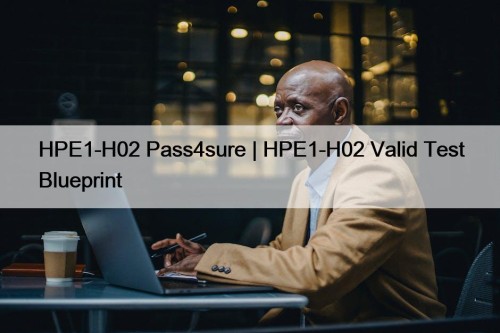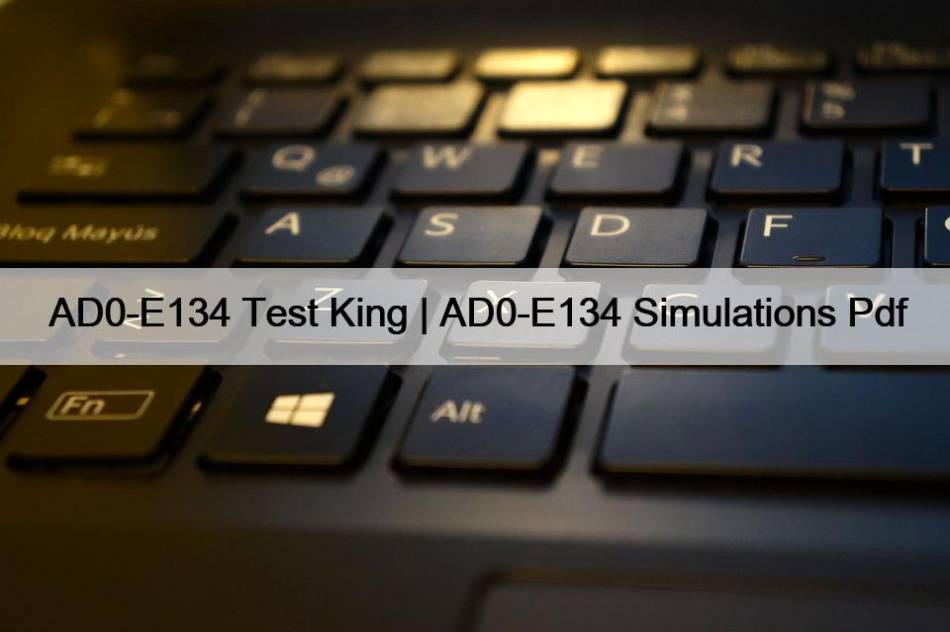Most Popular
 Valid PSD Exam Syllabus and Scrum PSD Exam Lab Questions: Professional Scrum Developer Latest Released
Valid PSD Exam Syllabus and Scrum PSD Exam Lab Questions: Professional Scrum Developer Latest Released
What's more, part of that BraindumpsVCE PSD dumps now are ...
 HPE1-H02 Pass4sure | HPE1-H02 Valid Test Blueprint
HPE1-H02 Pass4sure | HPE1-H02 Valid Test Blueprint
The rapid development of information will not infringe on the ...
 HPE2-T37 Online Lab Simulation - Realistic Using HPE OneView 100% Pass Quiz
HPE2-T37 Online Lab Simulation - Realistic Using HPE OneView 100% Pass Quiz
P.S. Free 2025 HP HPE2-T37 dumps are available on Google ...



AD0-E134 Test King | AD0-E134 Simulations Pdf

What's more, part of that PassLeader AD0-E134 dumps now are free: https://drive.google.com/open?id=1YB3YC_TkbVxU6Pg-dLVkNlHVWFhRVQgD
The Adobe Experience Manager Developer Exam (AD0-E134) certification exam is one of the top-rated career advancement certifications in the market. This AD0-E134 exam dumps have been inspiring beginners and experienced professionals since its beginning. There are several personal and professional benefits that you can gain after passing the AD0-E134 Exam. The validation of expertise, more career opportunities, salary enhancement, instant promotion, and membership of Adobe certified professional community.
However, when asked whether the Adobe latest dumps are reliable, costumers may be confused. For us, we strongly recommend the AD0-E134 exam questions compiled by our company, here goes the reason. On one hand, our AD0-E134 test material owns the best quality. When it comes to the study materials selling in the market, qualities are patchy. But our AD0-E134 test material has been recognized by multitude of customers, which possess of the top-class quality, can help you pass exam successfully. On the other hand, our AD0-E134 Latest Dumps are designed by the most experienced experts, thus it can not only teach you knowledge, but also show you the method of learning in the most brief and efficient ways.
AD0-E134 Simulations Pdf & AD0-E134 Exam Question
We guarantee that you can enjoy the premier certificate learning experience under our help with our AD0-E134 prep guide. First of all we have fast delivery after your payment in 5-10 minutes, and we will transfer AD0-E134 guide torrent to you online, which mean that you are able to study soon to avoid a waste of time. Besides if you have any trouble coping with some technical and operational problems while using our AD0-E134 Exam Torrent, please contact us immediately and our 24 hours online services will spare no effort to help you solve the problem in no time.
Adobe AD0-E134 Exam Syllabus Topics:
| Topic | Details |
|---|---|
| Topic 1 |
|
| Topic 2 |
|
| Topic 3 |
|
| Topic 4 |
|
| Topic 5 |
|
| Topic 6 |
|
| Topic 7 |
|
Adobe Experience Manager Developer Exam Sample Questions (Q72-Q77):
NEW QUESTION # 72
A developer needs to create a project based on AEM Project Archetype with a specific AEM as a Cloud Service SDK version on the local environment.
Which two properties must be defined when creating this project? (Choose two.)
- A. aemVersion=2022.5.7575.20220530T152407Z-220401
- B. sdkVersion=2022.5.7575.20220530T152407Z-220401
- C. sdkVersion=latest
- D. aemVersion=cloud
- E. aemVersion=latest
Answer: B,D
Explanation:
Explanation
The aemVersion property specifies the target AEM version for the project. To create a project based on AEM as a Cloud Service SDK, the value should be set to cloud. The sdkVersion property specifies the AEM as a Cloud Service SDK version to use for local development. To use a specific SDK version, the value should be set to the exact version number, such as 2022.5.7575.20220530T152407Z-220401. References:
https://experienceleague.adobe.com/docs/experience-manager-core-components/using/developing/archetype/usin
NEW QUESTION # 73
The OSGi configuration is added to a runmode specific configuration "config.author.staging" in AEM as a Cloud Service. The application fails to read the configuration.
What is a possible cause of this issue?
- A. The custom OSGi configuration runmode used (i.e., "config.author.staging") is not supported in AEM as a Cloud service.
- B. AEM as a Cloud service does not support OSGi configuration runmodes.
- C. OSGi configuration runmodes cannot be installed automatically on AEM as a Cloud Service. We need to install them as a package using the Package manager.
- D. Only <service> specific OSGi configuration runmodes like "config.author" or "config.publish" are supported in AEM as a Cloud service.
Answer: D
Explanation:
Explanation
AEM as a Cloud Service does not support custom OSGi configuration runmodes, such as
"config.author.staging". Only <service> specific OSGi configuration runmodes, such as "config.author" or
"config.publish", are supported. These runmodes are used to apply configurations to specific services, such as author or publish. The <service> specific runmodes can be combined with environment variables to achieve different configurations for different environments. References:
https://experienceleague.adobe.com/docs/experience-manager-cloud-service/implementing/deploying/configurin
NEW QUESTION # 74
A developer needs to create a dynamic participant step where the participant is selected automatically at run time.
The developer decides to develop an OSGi service, which needs to implement the com.day.cq.workflow.exec.ParticipantStepChooser interface.
Which method should the developer implement from the com.day.cq.workflow.exec.ParticipantStepChooser interface?
- A. void getParticipant(Workltem workltem, WorkflowSession workflowSession, MetaDataMap metaDataMap)
- B. String getDynamicParticipant(Workltem workltem, WorkflowSession workflowSession, MetaDataMap metaDataMap)
- C. String getParticipant(Workltem workltem, WorkflowSession workflowSession, MetaDataMap metaDataMap)
- D. void getDynamicParticipant(Workltem workltem, WorkflowSession workflowSession, MetaDataMap metaDataMap)
Answer: B
Explanation:
The com.day.cq.workflow.exec.ParticipantStepChooser interface is intended for implementations that will define the participant dynamically. This interface replaces the deprecated com.day.cq.workflow.exec.ParticipantChooser interface. The method getDynamicParticipant returns the dynamically resolved Principal id based on the work item, workflow session and metadata map parameters.References:https://developer.adobe.com/experience-manager/reference-materials/cloud-service/javad
NEW QUESTION # 75
A developer needs to create an OSGI service that is able to read a list of spoken languages from the configuration of the service. Theconfiguration file tanguageServicelmplefgjson' already exisls:
Which snippet should the developer use lo read the OSGi configurations?
- A.

- B.

Answer: B
Explanation:
To read a list of spoken languages from the configuration of an OSGi service, the correct snippet to use is Option B. This snippet demonstrates how to define and read the configuration properties using the OSGi R7 annotations (@ObjectClassDefinition and @AttributeDefinition), which are the recommended way for defining OSGi configurations in modern AEM projects.
Here is the detailed explanation of the snippet:
Option B Snippet Explanation:
* Component Definition:
@Component(
service = { LanguageService.class }
)
@Designate(ocd = LanguageServiceImpl.Config.class)
public class LanguageServiceImpl implements LanguageService {
This defines an OSGi component and designates a configuration class for it.
Configuration Interface:
@ObjectClassDefinition(
name = "Sample - Language Service",
description = "OSGi Service providing information about languages"
)
@interface Config {
@AttributeDefinition(
name = "Sample Languages",
description = "List of spoken languages"
)
String[] languages() default { "English", "Japanese" };
}
This defines the configuration interface with annotations to describe the configuration properties. The languages attribute is defined with a default value of {"English", "Japanese"}.
Activate Method:
private String[] languages;
@Activate
protected void activate(Config config) {
this.languages = config.languages();
}
* The activate method reads the configuration values and assigns them to the instance variable languages when the service is activated.
Here is the complete Option B code:
@Component(
service = { LanguageService.class }
)
@Designate(ocd = LanguageServiceImpl.Config.class)
public class LanguageServiceImpl implements LanguageService {
@ObjectClassDefinition(
name = "Sample - Language Service",
description = "OSGi Service providing information about languages"
)
@interface Config {
@AttributeDefinition(
name = "Sample Languages",
description = "List of spoken languages"
)
String[] languages() default { "English", "Japanese" };
}
private String[] languages;
@Activate
protected void activate(Config config) {
this.languages = config.languages();
}
// Additional methods to use the languages array
}
By using this approach, you ensure that your OSGi service can dynamically read and use the list of spoken languages specified in its configuration, making it adaptable to different environments and requirements.
References:
* OSGi R7 Annotations
* Adobe Experience Manager - OSGi Configuration
NEW QUESTION # 76
On package install content that is already present in the repos must not be overwritten and if not present in the repos it must not be removed.
Which import mode should the developer use?
- A. update
- B. merge
- C. replace
Answer: A
Explanation:
When installing a package in AEM and you want to ensure that existing content in the repository is not overwritten while ensuring that content not present in the repository is not removed, you should use the update import mode.
The update import mode performs the following actions:
* It updates existing content nodes in the repository with the nodes from the package being installed.
* It does not remove any existing nodes or properties in the repository that are not present in the package.
* It adds any new nodes or properties from the package to the repository.
This mode is particularly useful when you want to preserve any manual changes or additions that might have been made to the repository content outside of the package installations.
Here's how you can specify the import mode during package installation:
* Access Package Manager:
Log into your AEM instance and navigate to the CRX Package Manager (e.g.,
http://localhost:4502/crx/packmgr/index.jsp).
* Upload the Package: If the package is not already uploaded, click on "Upload Package" and select the package file from your local system.
* Install the Package: Click on "Install" for the package you wish to install.
* Choose the Import Mode: During the installation process, you will have the option to choose the import mode. Select update from the available options.
AEM Package Manager - Import Mode
* Complete Installation: Proceed with the installation. The content will be updated according to the rules defined by the update import mode.
By using the update mode, you ensure that your repository content is updated without losing any existing nodes or properties that are not part of the package.
References:
* Adobe Experience Manager Package Manager Documentation
* AEM Import Modes
These steps ensure that you manage content updates in a controlled manner, preserving existing repository content while incorporating updates from the installed package.
NEW QUESTION # 77
......
PassLeader's practice questions and answers about the Adobe certification AD0-E134 exam is developed by our expert team's wealth of knowledge and experience, and can fully meet the demand of Adobe certification AD0-E134 exam's candidates. From related websites or books, you might also see some of the training materials, but PassLeader's information about Adobe Certification AD0-E134 Exam is the most comprehensive, and can give you the best protection. Candidates who participate in the Adobe certification AD0-E134 exam should select exam practice questions and answers of PassLeader, because PassLeader is the best choice for you.
AD0-E134 Simulations Pdf: https://www.passleader.top/Adobe/AD0-E134-exam-braindumps.html
- Pdf AD0-E134 Files 🍨 Interactive AD0-E134 Course 🌖 AD0-E134 Updated CBT 🔏 Search for ➽ AD0-E134 🢪 and download it for free on 【 www.pass4leader.com 】 website ⚫AD0-E134 Test Result
- AD0-E134 Actual Test Pdf 🕸 Latest AD0-E134 Exam Cost 👒 AD0-E134 Reasonable Exam Price ↖ Go to website { www.pdfvce.com } open and search for ➠ AD0-E134 🠰 to download for free 🛫AD0-E134 Reasonable Exam Price
- 100% Pass Quiz 2025 Adobe AD0-E134 – High Pass-Rate Test King 🚜 Easily obtain [ AD0-E134 ] for free download through “ www.lead1pass.com ” 💧AD0-E134 Actual Test Pdf
- AD0-E134 Valid Exam Dumps 🦳 Pdf AD0-E134 Files ⛷ AD0-E134 Training Questions 🦢 Search for ➥ AD0-E134 🡄 and download exam materials for free through { www.pdfvce.com } 🌽AD0-E134 Pass4sure Exam Prep
- AD0-E134 Actual Test Pdf 📌 Valid AD0-E134 Real Test 🍱 AD0-E134 Test Result 🚔 ➠ www.pdfdumps.com 🠰 is best website to obtain ➥ AD0-E134 🡄 for free download 🛷AD0-E134 Test Result
- AD0-E134 Complete Exam Dumps 👼 AD0-E134 New Learning Materials ⚗ AD0-E134 Updated CBT 🩲 Download ( AD0-E134 ) for free by simply searching on ➠ www.pdfvce.com 🠰 ⏬Actual AD0-E134 Test
- AD0-E134 Test Result 🌗 Latest AD0-E134 Exam Question 😗 AD0-E134 Valid Test Notes 🦛 Search for ▛ AD0-E134 ▟ and download it for free on ▛ www.examdiscuss.com ▟ website 🧃Pdf AD0-E134 Files
- Adobe Experience Manager Developer Exam Pass4sure Test - AD0-E134 Pdf Vce - AD0-E134 Latest Reviews 👠 Search for ☀ AD0-E134 ️☀️ and obtain a free download on ▛ www.pdfvce.com ▟ 🌏Pdf AD0-E134 Files
- Pdf AD0-E134 Files 🎏 Latest AD0-E134 Exam Cost 🤾 AD0-E134 Reasonable Exam Price 🦄 Search for ➠ AD0-E134 🠰 and easily obtain a free download on 【 www.torrentvce.com 】 🌰Latest AD0-E134 Exam Question
- Latest AD0-E134 Exam Cost 🧢 Pdf AD0-E134 Files 👦 AD0-E134 Updated CBT 🦓 Download 「 AD0-E134 」 for free by simply entering 《 www.pdfvce.com 》 website 🚐AD0-E134 Updated CBT
- Adobe certification AD0-E134 exam test software ⚜ Download ▛ AD0-E134 ▟ for free by simply entering { www.testsimulate.com } website 🦑Latest AD0-E134 Test Camp
- AD0-E134 Exam Questions
- shufaii.com www.hola666.com rayfish878.goabroadblog.com www.so0912.com www.gpzj.net rayfish878.loginblogin.com noahmit875.oblogation.com 124.221.136.189 noahmit875.csublogs.com bsxq520.com
DOWNLOAD the newest PassLeader AD0-E134 PDF dumps from Cloud Storage for free: https://drive.google.com/open?id=1YB3YC_TkbVxU6Pg-dLVkNlHVWFhRVQgD
Tags: AD0-E134 Test King, AD0-E134 Simulations Pdf, AD0-E134 Exam Question, AD0-E134 Test Valid, Practice AD0-E134 Test Engine